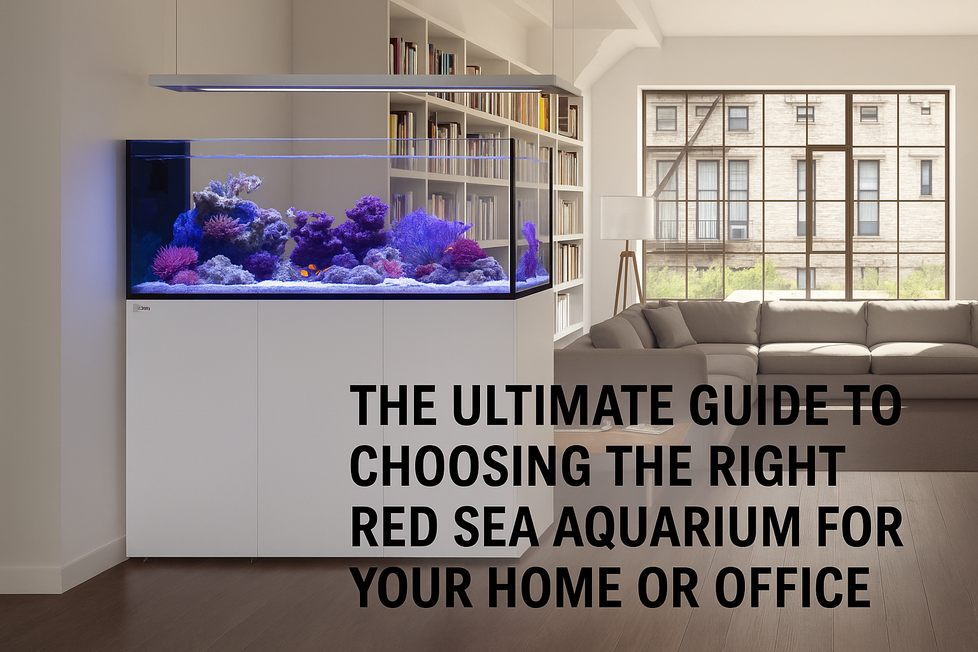Maintaining a stable pH level is essential for the health and vitality of your reef tank. Fluctuations in pH can cause stress to your marine life, leading to poor health and potentially fatal conditions. In this blog post, we will explore the importance of pH in a reef tank, the causes of pH fluctuations, their effects on marine life, and effective solutions to maintain optimal pH levels. We’ll also provide links to top products available at Charterhouse Aquatics to help you manage your reef tank's pH levels effectively.
What is pH?
pH is a measure of the acidity or alkalinity of water, with a scale ranging from 0 to 14. A pH of 7 is considered neutral, below 7 is acidic, and above 7 is alkaline. For reef tanks, the ideal pH range is between 8.1 and 8.4. Maintaining pH within this range is crucial for the health of corals, fish, and other marine organisms.
Causes of pH Fluctuations
1. Carbon Dioxide Levels
High levels of carbon dioxide (CO2) in the water can lower pH. CO2 levels can increase due to insufficient gas exchange or poor ventilation around the aquarium.
2. Biological Activity
The metabolic activities of fish, corals, and other organisms produce CO2, which can lead to pH drops, especially at night when photosynthesis ceases, and respiration continues.
3. Water Changes
Using water with a different pH level than your tank can cause fluctuations. Tap water or improperly mixed saltwater can alter the pH balance.
4. Buffering Capacity
The buffering capacity (alkalinity) of your water helps stabilize pH. Low alkalinity can result in unstable pH levels, causing rapid fluctuations.
5. Decaying Organic Matter
Decomposing organic matter, such as uneaten food or dead organisms, can release acids into the water, lowering pH.
Effects of pH Fluctuations on Marine Life
1. Stress and Health Issues
Fluctuations in pH can cause stress to fish, corals, and invertebrates, weakening their immune systems and making them more susceptible to diseases and infections.
2. Impaired Calcification
Corals rely on stable pH levels for calcification, the process of building their calcium carbonate skeletons. Low pH levels can impair this process, leading to stunted growth and weaker structures.
3. Reduced Oxygen Levels
Low pH levels can reduce the oxygen-carrying capacity of water, affecting the respiration of marine life and leading to hypoxia (low oxygen levels).
Solutions to Maintain Optimal pH Levels
1. Regular Testing
Frequent testing of pH levels is essential to detect and address fluctuations promptly. Use a reliable test kit to monitor pH levels regularly.
Recommended Product: API Saltwater pH Test Kit
2. Improve Aeration and Gas Exchange
Enhance aeration in your tank by using powerheads, air stones, or surface skimmers to increase gas exchange and reduce CO2 levels.
3. Use a High-Quality Salt Mix
Ensure you use a high-quality salt mix that maintains proper pH and alkalinity levels when performing water changes.
Recommended Product: Red Sea Coral Pro Salt
4. Maintain Alkalinity
Alkalinity acts as a buffer to stabilize pH levels. Regularly test and maintain alkalinity within the recommended range (7-11 dKH) to prevent pH fluctuations.
Recommended Product: Seachem Reef Builder
5. Use pH Buffers and Stabilizers
Consider using pH buffers and stabilizers to maintain stable pH levels. These products help counteract acids and keep pH within the optimal range.
Recommended Product: Tropic Marin Triple Buffer
6. Remove Decaying Organic Matter
Regularly clean your tank to remove uneaten food, dead organisms, and other organic matter that can decay and lower pH levels.
Recommended Product: Eheim Vac Pro
Conclusion
Understanding and maintaining stable pH levels in your reef tank is crucial for the health and well-being of your marine life. By identifying the causes of pH fluctuations and implementing effective solutions, you can create a stable and thriving reef environment. Explore the range of products available at Charterhouse Aquatics to support your reef tank maintenance and ensure optimal water quality.
For all your aquarium needs, trust Charterhouse Aquatics to provide top-quality products and expert advice. Invest in the right tools and solutions to keep your reef tank healthy and vibrant.


